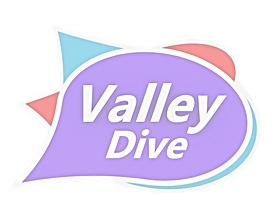
PRESS
THE FACTS:
Attitude is Everything

Entry
Be forewarned! When your Child is being "judged", it is very hard to make sense of "WHY" their scores are lower than others' scores. The judges are looking for specific technique such as Height, form, strength, personality, body position, and, of course, entry. They know the quality of training your coach provides, and they will add points to Athletes who can compete well, and show control.
TRAINING COMPONENTS
Gym- is necessary for specific body movement control, and preparation for "next dives", which builds confidence, and reduces fear.
Ideally 25% Gym, 25%.
Pool Warm-Up, 50% Pool, although usually kids want 75% pool time, especially at younger ages.
A variety of exercises to increase eye-hand coordination, such as Tennis Day, mini-tramp, Jump Rope, Stretch Bands, Stretching, Body Modeling etc.
Pool Side Work- A very important part of diving warm-up includes specific exercises from the side of the pool to prepare athletes for the diving work-out to follow, including basic jumps, head position, arm position, body compression and extension.
Pool Work-Out- Stay on a multi-day schedule (age appropriate) over time and EVERY CHILD will see improvement. IF TECHNIQUE IS ENFORCED, Time and repetition is a divers friend.
If Ignored, your Athlete will plateau at the age of 13-15.
Your Time Commitment is important!
BASICS:
Begin at the Beginning.
We teach Diving with a Positive Re-enforcement technique that works.
Athletes must attend Gym to advance, as skills and participation
mature
ONLY the athlete
determines the
speed of advancement,
and how, and with what
attitude to train.
The Coach is your Guide
It is all so bizarre. Your child finds a sport (or activity), and suddenly, they are excited and want to improve quickly, but have no real experience in the act of competing (or risk taking, for example). Unlike the observable peacock sports (soccer, football, basketball, baseball, the smaller orphan sports (diving, fencing, crew, equestrian, etc.) offer a much clearer pathway to an elite level. (over 350,000 kids involved in Gymnastics at younger ages of 6-14, and less than 5,000 in diving). Elite gymnastics in the US is about 120 kids. Elite Diving in the US is about 200. The difference is; Clarity; you can see all the way to the top in the smaller sports (larger sports have many restricted onion layers of visibility), yet, after a couple of years in the smaller sports...you are an expert too, (of sorts).
HOWEVER...
The path for diving is long, and, invariably... every dog has his(her) day. It may not happen for 10 years, but if a good work ethic, better academics, better time management, better team interaction, better maturity, better all-around social skills are the goal, the smaller sports (diving for instance), are great options. Keep in mind, that most kids sticking with diving either get into a college that they choose, and some have scholarship monies (part or whole), offered as a result of their hard work (of course, variables such as ability and grades come into play for many top universities).
*WHEN TO RUSH
For those coming to Diving as 9th 10th, 11th 12th grade student athletes, especially transfers from other sports, I can safely state that "things get complicated in High School". Therefore,
GET SOMEONE TO ADVISE YOU ON YOUR OPTIONS.
We are here for you or can refer you to another person with this experience.
When contemplating a high level of expectation in High School or University sports (or Scholarship opportunities), it is imperative that 1) you begin having a family conversation as soon as possible, 2) coordinating and planning get underway with coach, to encourage a likely positive outcome for the time and money that needs to be invested to reach this goal. Spend as much as possible to reach the outcome you wish to achieve. At early ages, let the Athlete have fun. By the age of 10, 2-4 days necessary to stay on the path, and become ingrained in the sport. A commitment of 4-6 days is a necessity at the high school age range, to achieve college entry benefit, as talent permits.
Time is of the essence, yet is relative to goals.

HURDLE
time is fleeting
It Takes 10,000 Hours to Become
PROFICIENT at any activity
In Diving, it takes about 50,000 Dives
THIS MEANS A COMMITMENT OF:
1 Day Weekly = 1-2 hours = A HOBBY
2 Days Weekly = 4-6 hours = MAINTENANCE
3 Days Weekly = 5-9 Hours = High School Goal
4 Days Weekly = 7-12 Hours = Club Track
5-6 Days Weekly = 12-20+ Hours = ELITE TRACK

FLIGHT
CHEMISTRY!
YOUR child has a unique personality. You and your partner have unique personalities. Coaches have unique personalities. The sport club, or team that your
child(children) participate in have unique dynamics and culture. Not every program is right for every family.
YOUR child will mature, and the flavors of all of these unique circumstances for sport (or academics/activities for that matter), are a giant chemistry experiment, with all the moving pieces changing at every development stage, (of all parties involved). Safe to say that a culture of a particular dive club completely changes over the course of 6 years, just as a coach perspective inevitably changes over time. If you understand and look forward to these changes (in yourself as well), you will provide an invaluable support to your child. If you demand faster development, more attention for your child, or expect things to remain static over the development stages of your child's sport or academic career, you will not only be fighting an impossible battle, but likely will find an unhappy result to your quest, and/or, contribute to an insufferable product, (and you may face some ongoing difficulty fitting into the specific sport culture at hand).
